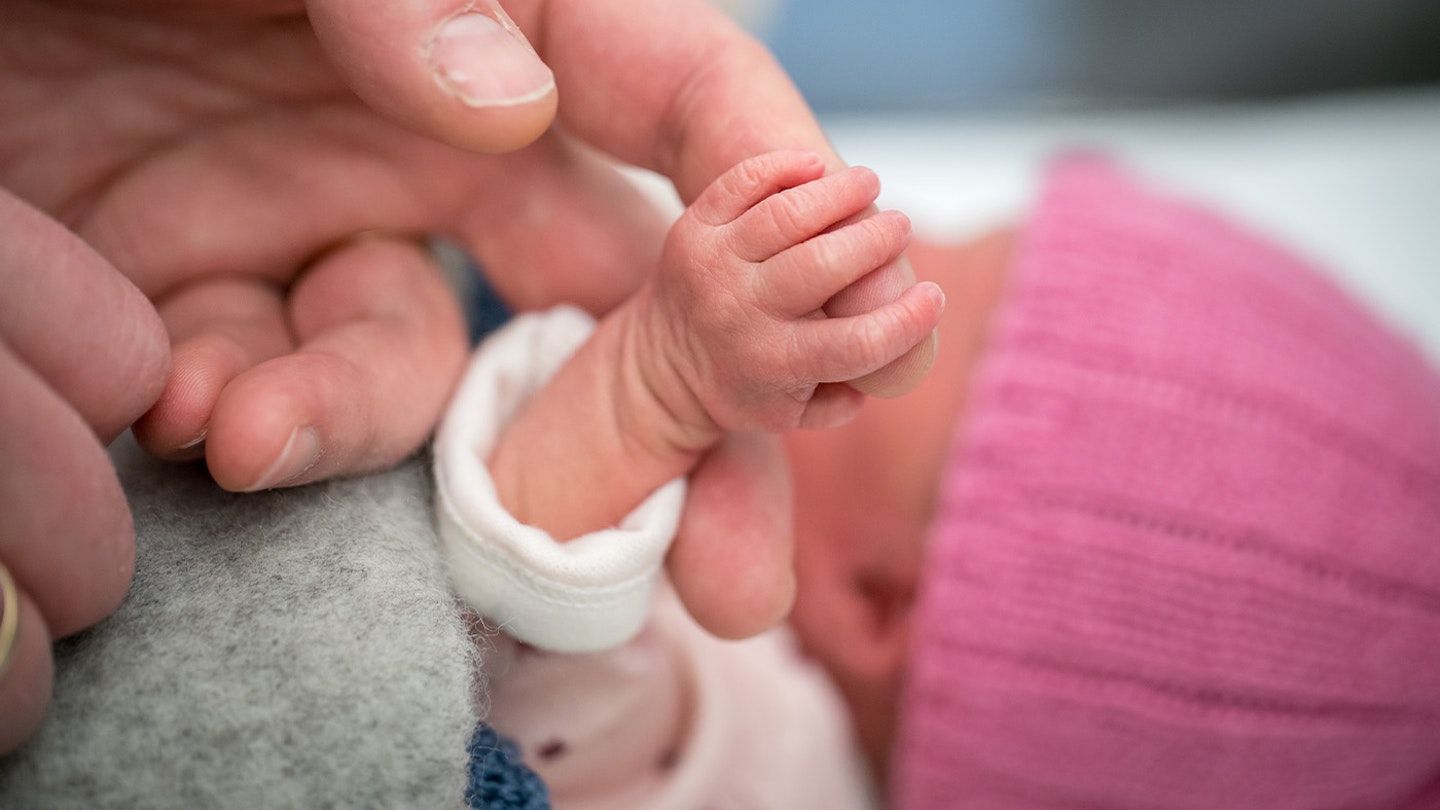The emotional strain of having a premature baby can be enormous. Around 60,000 babies are born prematurely in the UK, each year. In fact, the rate of preterm birth is between seven to eight per cent.
A 'premature' baby is one that is born before 37 weeks. If your baby is born early they may need special care as they may not be fully developed.
For many of these babies, an early arrivalmeans a fight for survival and months of uncertainty for parents.
If you're currently going through this worrying time and are unsure how to cope, our experienced mums and neonatal experts have shared their advice and support on dealing with having a baby before term.
Premature baby hospital care explained
Don’t get confused by jargon used by health professionals when talking about your premature baby’s care. We’ve got a simple guide to the medical terminology
Now your baby is here, understanding the care your baby needs from the hospital is important but hearing a lot of abbreviations from hospital staff can leave you in a bit of a spin, particularly if you have a premature baby.
We break down all the baby care terminology and explain what it all means for you and your baby.
Neonatal intensive care unit (NICU)
If your baby is born with serious complications or is born very premature, (from 26-35 weeks), you may find your baby is transferred to the neonatal intensive care.
This is the highest level of care and is for the smallest and sickest babies.
NICUs can offer your baby the entire range of neonatal care. If your baby has had major surgery, they will spend some time recovering in the NICU after their operation.
Local neonatal unit
Your baby could be transferred to a local neonatal unit if they are unwell but not considered critical. These units still provide sophisticated care but the babies are not as ill as those in the NICU.
Babies weighing less than 1kg are sometimes cared for in a local neonatal unit even if they are relatively strong.
The local neonatal unit can provide continuous positive airways pressure (CPAP) for breathing support, and can look after babies who need their breathing to be stimulated. Your baby can also receive intravenous (IV) or tube feeding in the local neonatal unit.
Special care baby unit (SCBU)
If your baby is born needing some support or observation but is otherwise strong, they will be transferred to the special care baby unit. This level of care is sometimes referred to as ‘low dependency’.
The special care baby unit can offer your baby some kinds of tube feeding, oxygen, and phototherapy (light treatment) for jaundice.
Special care is also for babies who need to have their breathing or heartbeat monitored. The unit can provide some intensive care in an emergency but not for longer periods.
Transitional care
If your premie is in transitional care, it means your baby still has some needs but is almost ready to go home.
But most importantly the mother becomes the main carer with support from a nursery nurse or other staff on the unit.
The staff at your hospital will always advise you if there is something you are unsure of and will offer the support you need, as well as all the care your baby needs.
Neonatal Care Leave in the UK – What parents need to know
The UK government is introducing a new statutory Neonatal Care Leave entitlement to support parents of babies who need specialist care after birth. From April 6th 2025, eligible employed parents will be entitled to up to 12 weeks of paid leave, in addition to existing maternity, paternity, and shared parental leave.
This new policy applies when a baby is admitted to neonatal care for at least 7 continuous days within the first 28 days of life. It aims to ease the emotional and financial pressure on families during what can be a stressful time. Neonatal leave will be available from day one of employment, ensuring parents can be there when their baby needs them most.
This change is a big step forward in recognising the realities many families face, offering much-needed flexibility and support during the earliest - and often most challenging - days of parenthood.
Premature baby support and advice from experts and mums
'Having a premature baby is very frightening for many parents,' says Carmel Bartley, family support manager for Bliss. 'The idea of the perfect birth and seeing your baby and bonding immediately is taken away from you due to the circumstances that your baby needs to be cared for immediately. Many parents find this a very distressing time. The idea of the perfect birth and seeing your baby and bonding immediately is taken away from you due to the circumstances that your baby needs to be cared for immediately. Many parents find this a very distressing time.'
Mum 1: 'Straight after having my baby I felt this sense of loss that I was no longer pregnant when I was supposed to be and I can remember being on the postnatal ward and one other mum who had a term baby looking at me and saying ‘well you don’t even look like you’ve had a baby’ and I felt like turning around and saying ‘well that’s because I wasn't supposed to have had a baby yet, it’s supposed to still be inside me’.
Carmel says: 'Missing the perfect is of course an emotional time for a lot of parents. You’ve thought, you’ve hoped, you’ve wished for this moment and sometimes you feel this might have been snatched away from you. However, in time, and through talking to people, you will find that for your baby to be going home happy and healthy is the most important thing.'
Mum 1: 'So when he was six months that was when I started to enjoy him more, when I realised he was going to be fine. He was gaining weight fine, he was meeting his developmental milestones, so I didn’t think there was going to be a problem. And I also realised at that point that he was growing really quickly and I was losing my baby. So, rather than miss out on the rest of his baby months I started to enjoy them.'
Mum 2: 'So, Ernie was born exactly four weeks early, so exactly on 36 weeks when my waters broke. But as much as I didn’t want it to happen and I didn’t want to go into hospital, looking back I’m actually really glad I did - they were great in hospital, there were no problems at all with him being premature and we were out the next day. They keep a close eye on him because he’s premature so it was a good experience looking back and the hospital was great.'
Kate, Cow & Gate Midwife says: 'Luckily, down to medical science – and it’s come a long way – that a lot of babies do very well and are well cared for. The good thing is that the units today are really advanced to what they used to be, but on the other hand that can sometimes look a little bit scary when you see your baby in a neonatal unit. But the staff is usually really good and very used to it and will happily explain everything to you, so it’s not normally as scary as it looks.'
Mum 2: 'I think the minute that you have them you realise that how you have them isn’t important as long as they’re safe and it’s a good labour.'
Things mums wish they’d known before having a premature baby
"I wish I’d known that it’s OK not to be OK"
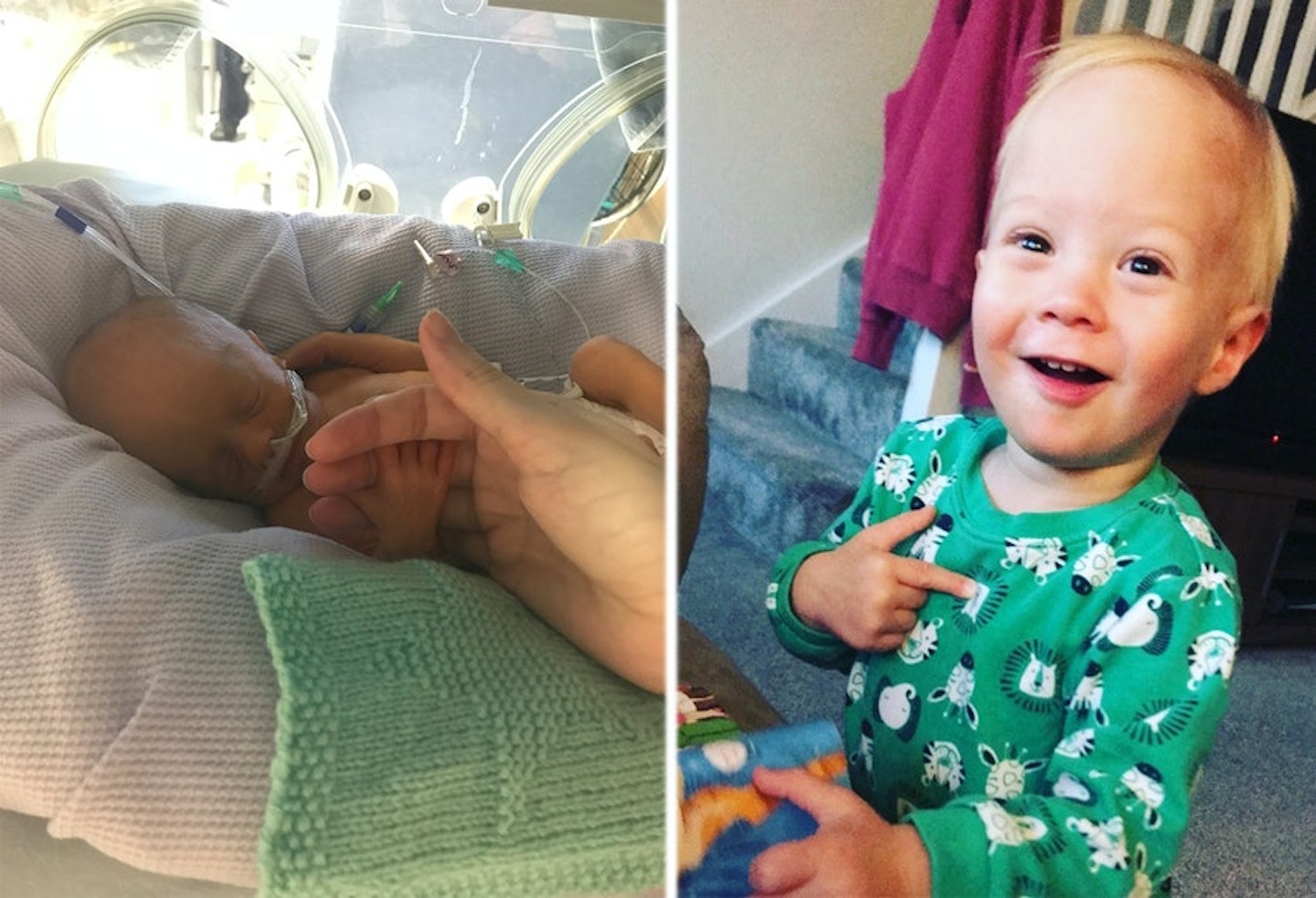
Charlie was born at 31 weeks, weighing 3lbs. His parents, Charlotte and Glen, from Leeds weren’t able to cuddle him until he was a day old, describing it as absolute hell. For six weeks he was in NICU, and Charlotte says the five things she wish she’d known are:
• I wish I’d known that the preemie journey can start before birth
• I wish I’d known that it’s OK not to be OK
• I wish I’d known how many support systems for parents are in place
• I wish I’d known that there’s no such thing as too many questions
• I wish I’d known that the preemie ups and downs continue after NICU
"I wish I’d known how well Jessica would do"
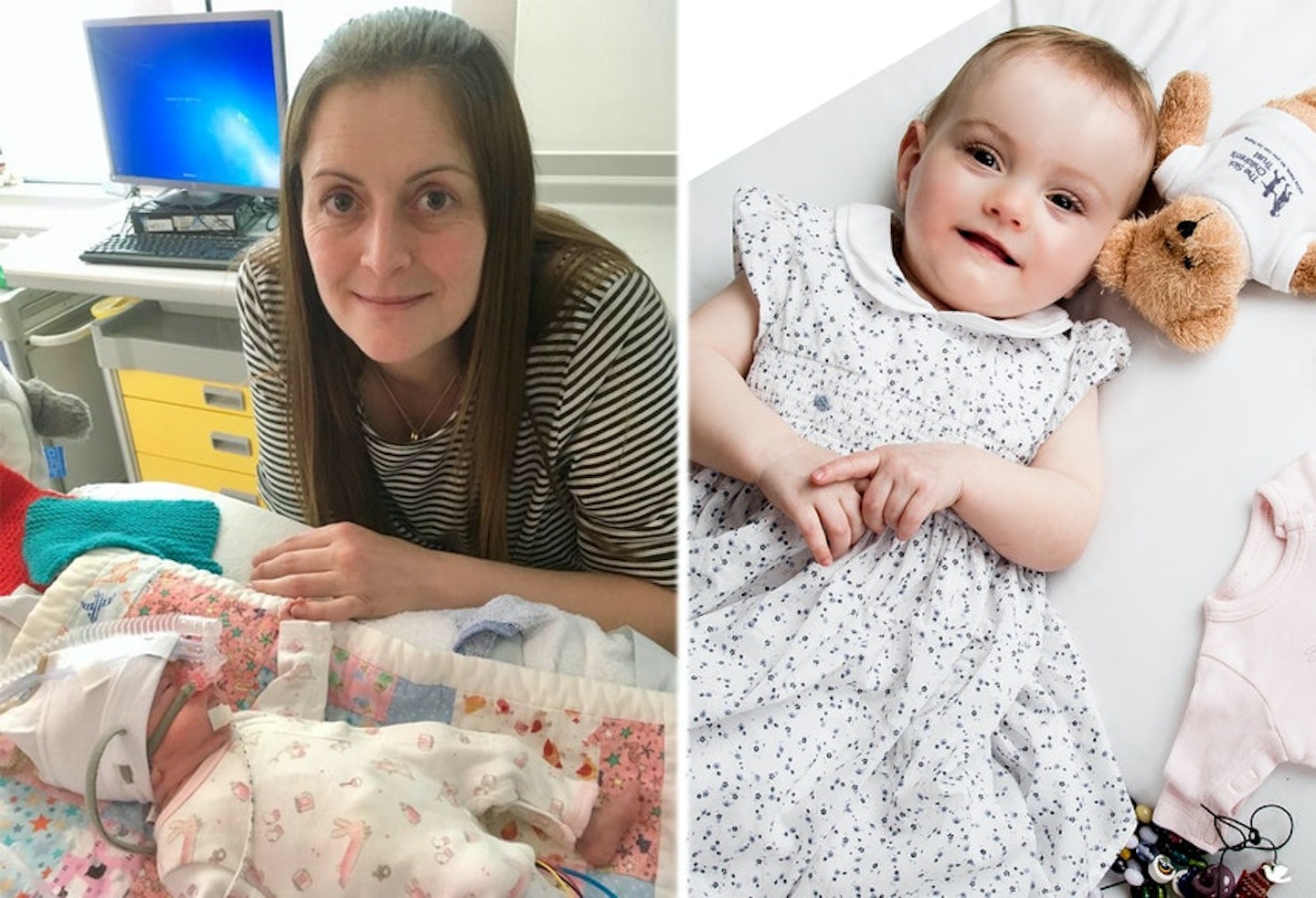
Rebecca had her daughter at just 27 weeks. Jessica weighed a tiny 760 grams and was only 10 inches long. She spent a month in The Rosie Hospital, 20 miles away from the family home in Bedfordshire. The five things they wish they’d known are:
• I wish I’d known more about pregnancy complications
• I wish I’d known about NICUs and the enormity of having a premature baby in one
• I wish I’d known that there is a massive support network when you have a premature baby, including help from charities like The Sick Children’s trust
• I wish I’d known how much we could be affected by the situation.
• I wish I’d known how well Jessica would do
"I wish I’d known that it’s OK to not know the answers"
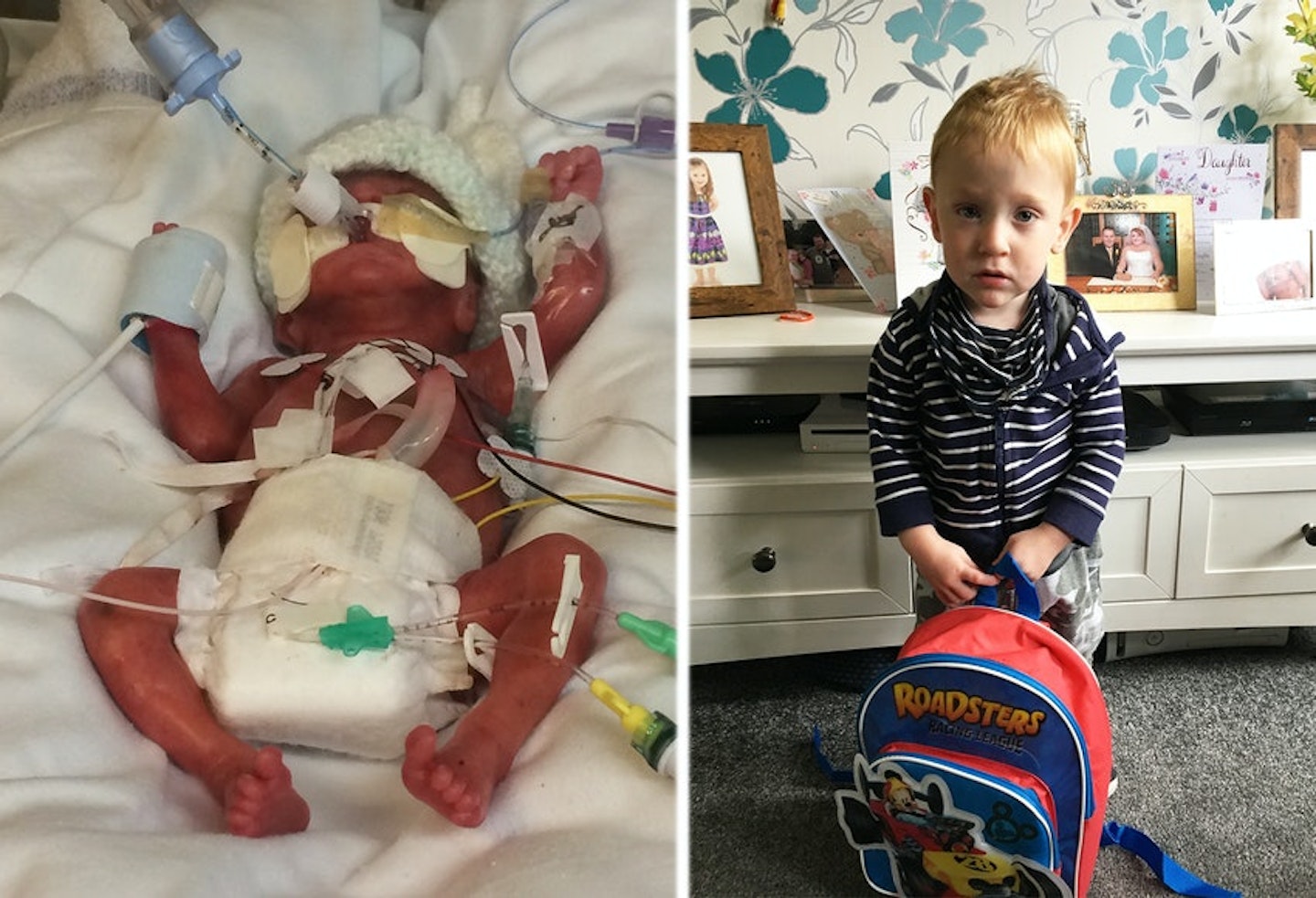
Anita Hyams, from Southend, who had her son William at 23 weeks. To help other parents going through what she went through she has shared five things she wish she’d known about having a premmie:
• I wish I’d known that NICU life is a rollercoaster ride
• I wish I’d known that it’s OK to not know the answers
• I wish I’d known that it’s OK to cry
• I wish I’d known that it’s OK to take a break
• I wish I’d known that it’s OK to need help
"I wish I’d known someone who had been through it before"
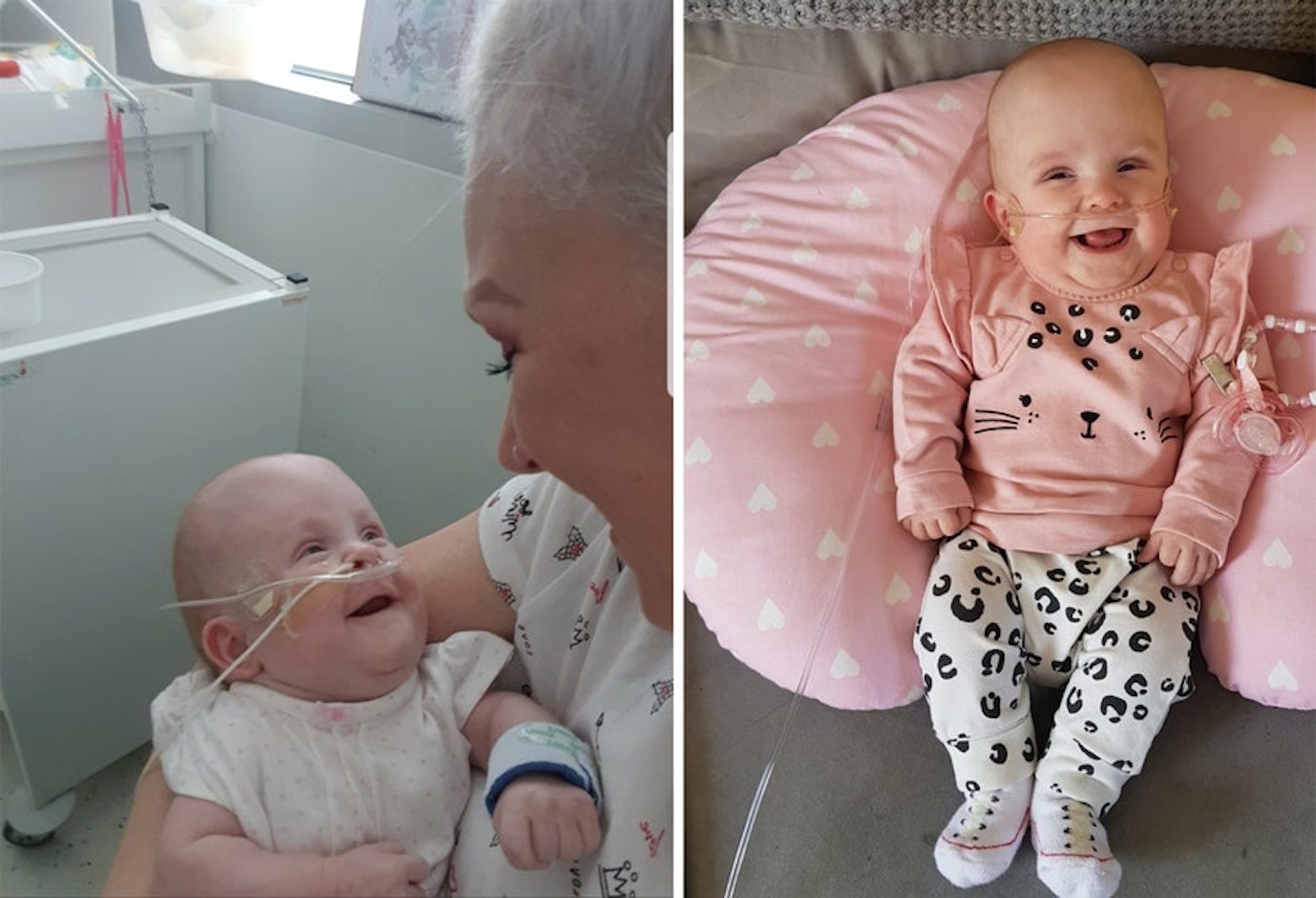
Daisy was born at 27 weeks weighing just 630 grams. She spent six months in hospital, much of which was The Rosie Hospital, 16 miles from the family home in Suffolk. Daisy is now doing really well at 10 months old! Five things her mum Kirsty wish she’d known are:
• I wish I’d known more about the unexpected
• I wish I’d known someone who had been through it before
• I wish I’d known that the impossible hug wouldn’t last forever
• I wish I’d known that sleepless nights are just a part of the journey
• I wish I’d known it’s all about taking one step at a time
Lorna White is the Products Editor for Mother&Baby. After running the Yours magazine website, specialising in content about caring for kids and grandchildren, Lorna brought her expertise to Mother&Baby in 2020. She has a keen interest in a range of topics from potty training and nutrition to baby names and early development and has a wide range of experienced medical experts and professionals at her fingertips. In her spare time, she enjoys spending time with her two young sisters, dog walking and enjoying the outdoors with her family.
